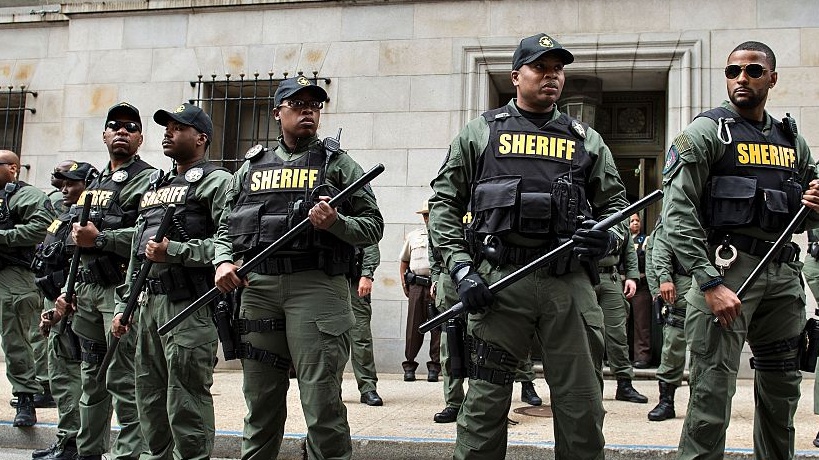Black officers receive more consequences for misconduct allegations compared to their white peers, according to a new study from Indiana University.
Six professors at the university's school of business examined racial differences in how police officers were disciplined in three of the largest U.S. cities: Chicago, Philadelphia and Los Angeles. The misconduct allegations varied from physical assault or violence to verbal attacks and "lack of service," according to the study.
Findings from “The Race Discipline Gap: A Cautionary Note on Archival Measures of Behavioral Misconduct” study showed that Black officers were disciplined for allegations of misconduct more often than white officers despite an equal number of misconduct claims for officers of both races.
The professors used data pulled from the Citizens Police Data Project that included archival information for each city. For Chicago, the force had data on discipline rates from 2001 to 2008, while Philadelphia's police department only had data from 1991 to 1998. Data from Los Angeles was only from 2003 to 2004.
"We found a consistent pattern of racial differences in the formal recording of disciplinary actions in three different major metropolitan cities: Chicago, Philadelphia and Los Angeles," the study read.
"Our results showed that Black officers were more likely to have recorded cases of misconduct, despite there being no difference between Black and white officers in the number of allegations made against them. It is impossible to know whether these differences are due to racial bias versus some other unmeasured factors. However, it is noteworthy that the pattern of results is in line with what theories of racial bias would predict and with evidence of racial disparities in punishment in other settings," it added.
Additionally, professors Sheri Walter, Eric Gonzalez-Mulé, Cristiano Guarana, Ernest O'Boyle Jr., Chris Berry and Tim Baldwin used data from police departments in each city to show that Black officers were more harshly punished than white police officers.
In Chicago, Black officers faced a 105% higher rate of discipline than white officers while Black officers in Philadelphia were 48% more likely to face consequences for their misconduct. Los Angeles was the only city where there was no difference in how Black and white officers were disciplined, with similarly mixed numbers for Asian or Hispanic officers.
In a statement from the university, the researchers said their goal was to examine whether the exceptionally harsh treatment Black people face in almost every industry extended even to police departments.
Multiple studies have shown that Black children are more likely to be disciplined or suspended in school and Black adults are more likely to be arrested, charged and given lengthy sentences compared to white people, according to multiple reports.
The study proves that, following the pattern of other trends in the United States, Black police officers do generally face more discipline than white officers overall. When the data is put together, Black officers face harsh discipline 132% more often than white officers.
"Similar to the issues facing the criminal justice and education systems, where racial disparities in punishment are well-documented, organizations face a difficult challenge in detecting and enforcing misconduct. Even when organizations adopt seemingly objective policies for addressing misconduct, it is still possible for certain groups to be disproportionately accused of misconduct and/or disciplined," the professors wrote in the study.
"Just as organizational leaders have implemented policies and procedures to mitigate adverse impact in hiring, they may need to implement checks to ensure that there is no adverse impact in the detection and enforcing of organizational misconduct. Just as bias by police against citizens has been very slow to change, it is likely that any bias within police departments has also been slow to change," they added.
